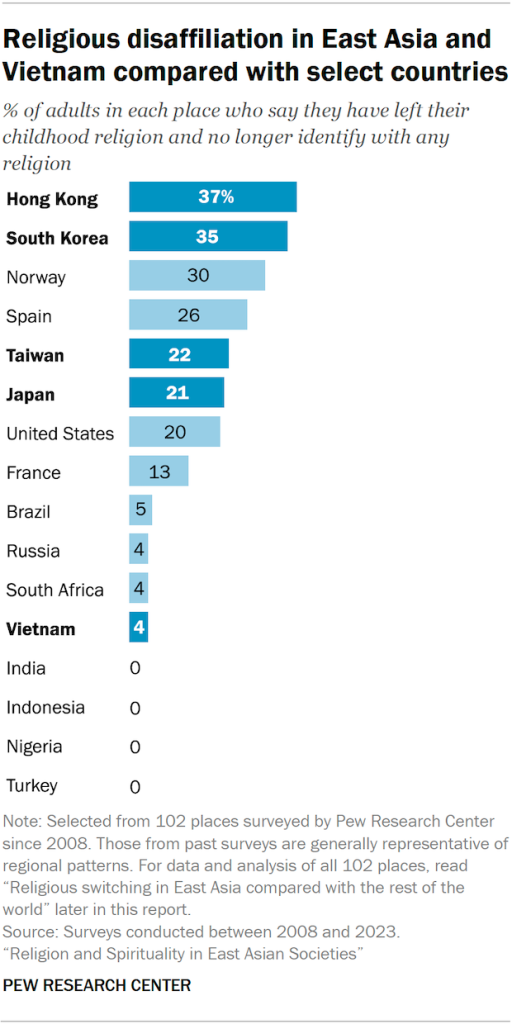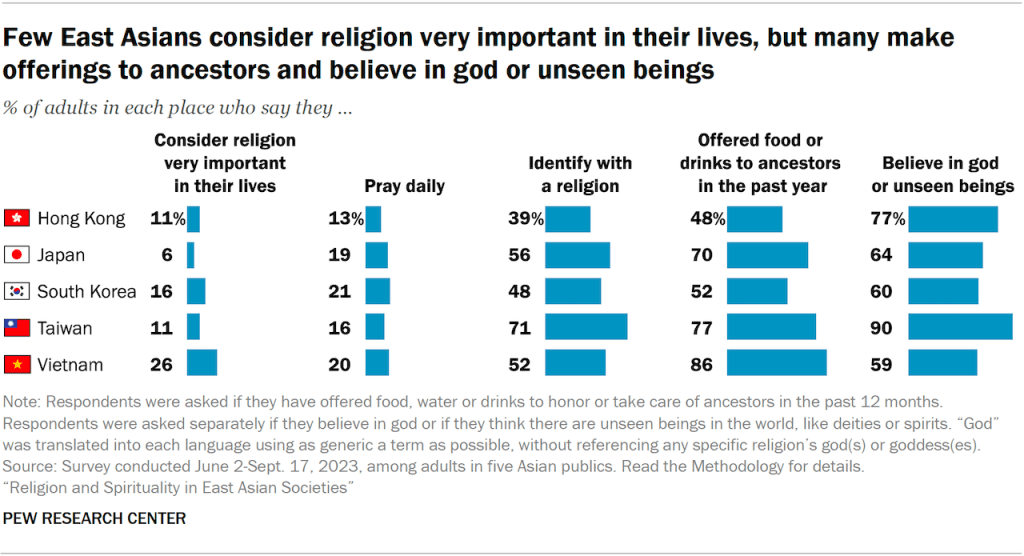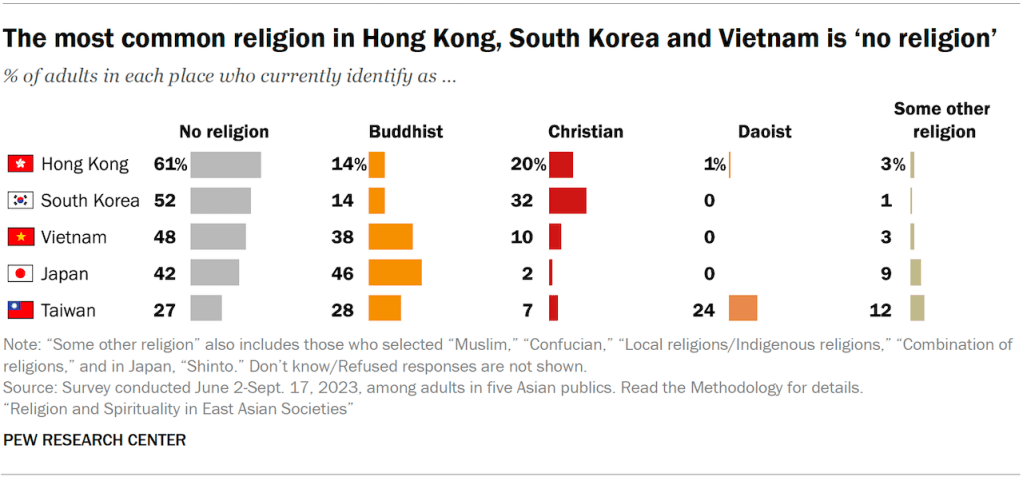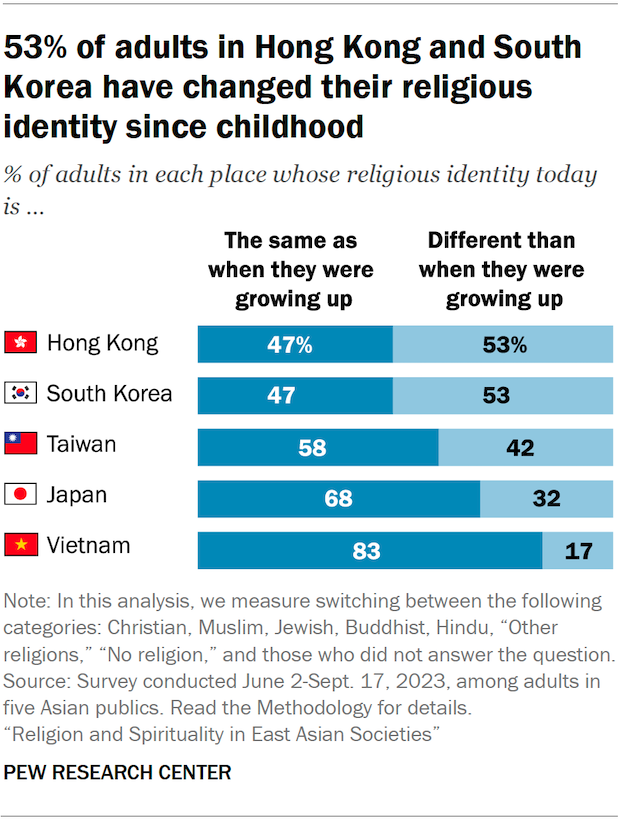(ZENIT News / Seoul, 24.06.2024).- Religion is undergoing a significant change in East Asia. A recent Pew Research Center Report revealed that the region of Hong Kong, South Korea, Japan, Taiwan and Vietnam has one of the highest rates of religious conversion and de-conversion at the world level. Half of adults in Hong Kong and South Korea have abandoned the faith in which they were raised, choosing another religion or none at all.

Abandonment of Traditional Faith
In places such as Hong Kong and South Korea, over one third of adults no longer identify with any religion. However, many of these noes’ continue holding beliefs in invisible beings or in some type of deity. This phenomenon highlights a disassociation between formal religious affiliation and personal spiritual beliefs.
Persistence of Traditional Practices
Despite the decrease in religious affiliation, traditional practices continue being common. For instance, last year, about 80% of adults in Taiwan and Japan burned incense to honour their ancestors. This tendency suggests that cultural and ritual practices carry a significant weight, regardless of formal religious affiliation.

Diversity in Christian Beliefs, Education and Spiritual Beliefs
Although a minority, Christianity shows interesting particularities. In Vietnam, 80% of Christians attend church weekly, a significantly larger number than in other places of the region. Moreover, Christians tend to consider religion as something very important in their lives, more than Buddhists.
The Report also reveals that educational levels influence spiritual beliefs. In Hong Kong, adults with a University education are more prone to believe in invisible beings than those with less education. This pattern suggests a complex relationship between education and spirituality in the region.
The Phenomenon of Disaffiliation
Hong Kong and South Korea have the highest rates of religious disaffiliation in the world. 37% of the population in Hong Kong and 35% in South Korea have abandoned the religion of their childhood. This tendency might reflect an instrumental use of religion, where practical benefits are sought more than a profound spiritual commitment.

Cultural Influence and Spirituality
Many adults without religious affiliation continue feeling themselves connected to traditions such as Buddhism or Confucianism. In South Korea, for instance, the majority of the non-affiliated identify themselves with a Confucian style of life. This indicates that spirituality and cultural identity are profoundly intertwined in the region.
The Pew Research Center study stresses the fluidity and complexity of religious identity in East Asia. Although many affirm they do not have a formal religious affiliation, spiritual practices and beliefs continue being vibrant. This phenomenon highlights the necessity to reconsider how religiosity is measured and understood in different cultural contexts.
Thank you for reading our content. If you would like to receive ZENIT’s daily e-mail news, you can subscribe for free through this link.




